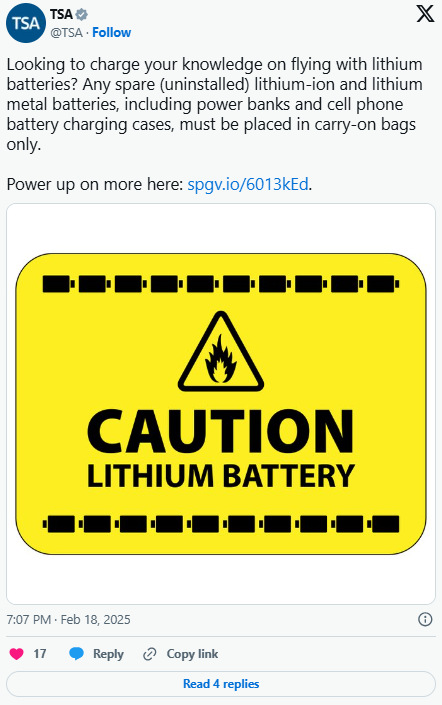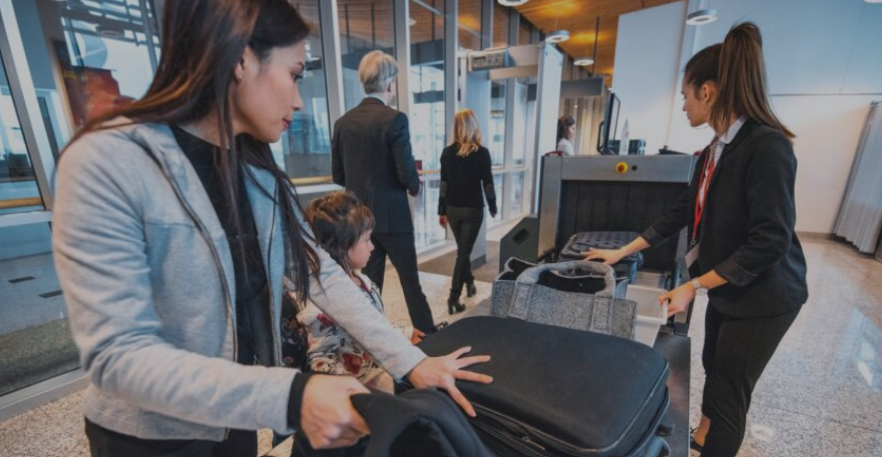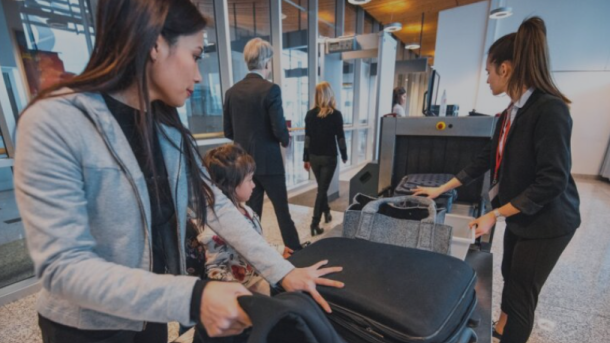The TSA power bank ban has recently been enforced, prohibiting passengers from carrying power banks in their checked luggage. This new regulation, effective from March 1st, aims to enhance safety after a recent incident where a power bank caused a fire on an Air Busan flight. The fire, which occurred in the upper luggage compartment, spread quickly and posed a significant danger to everyone onboard. Fortunately, the flight was on the ground at the time, and all passengers were safely evacuated. However, the incident prompted the TSA to enforce stricter rules.

TSA Power Bank Ban: Why It’s Necessary for Safety
The TSA power bank ban comes as a direct response to the dangers associated with lithium-ion batteries, which are commonly found in portable chargers. These batteries can overheat or malfunction, leading to a process known as “thermal runaway.” If not handled properly, a lithium-ion battery can cause fires, as seen in the Air Busan incident. This new regulation requires power banks to be carried in your carry-on bags only, ensuring the safety of all passengers onboard.

How the TSA Power Bank Ban Affects Air Travel
Under the new guidelines, airlines such as Air Busan, Eva Air, and China Airlines have already adjusted their policies to comply with the TSA power bank ban. The Federal Aviation Administration (FAA) has also reinforced these measures, emphasizing that any spare lithium-ion or lithium metal batteries must be kept in the cabin. This rule aims to limit the risk of fires while in the air, providing passengers and crew members with a safer flight experience.
Source: www.inquisitr.com



